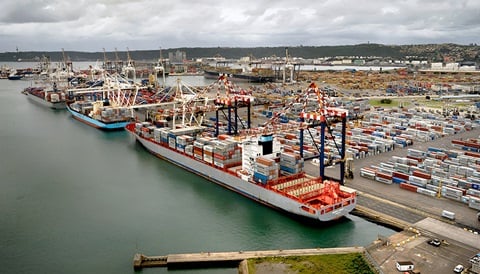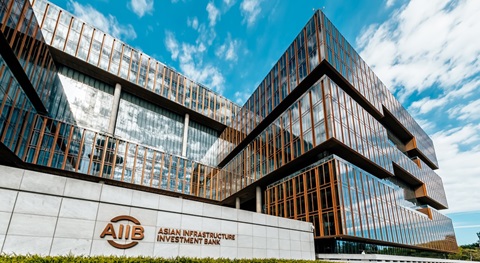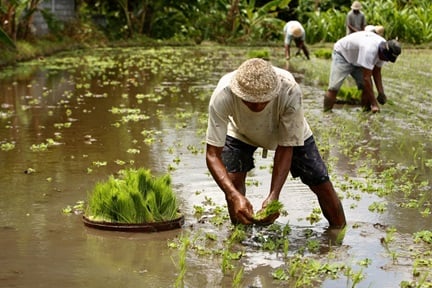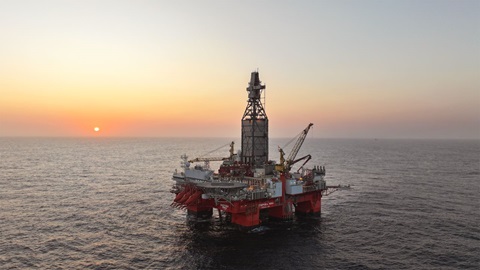Progress on gas pipelines connecting Nigeria with Morocco and Algeria
The two pipelines may help European energy security but will do little to electrify Nigeria

Steps have been taken in recent weeks to begin work on two pipelines that will transport Nigerian gas to Europe via North Africa. One is an 7000kms offshore-onshore pipeline that would run from Nigeria to Morocco through the Atlantic ocean connecting at least 11 other west African countries along the way. The other is an onshore gas pipeline that will run from Nigeria to Algeria passing through the vast dry landscape of Niger along the way.
A senior official of the Nigerian National Petroleum Corporation (NNPC) told the local press that feasibility studies for the Atlantic pipeline project had taken place and a final investment decision for the project was awaited. The Economic Community of West African States (ECOWAS), of which Nigeria is a member had formally endorsed the project as far back as in 2020. It is expected to benefit gas endowed as well as gas deficient countries. It will build on the existing West African Gas Pipeline, which currently links Nigeria to Benin, Togo, and Ghana. The project was devised by Morocco’s King Mohammed VI and Nigerian President Muhammadu Buhari to enhance African integration and secure energy security.

Meanwhile, Algeria, Niger and Nigeria have held talks on the revival of a two decades-old project to pipe gas across the Sahara. The three countries have set up a ‘task force’ and designated an entity to update the feasibility study which was done years ago. Once completed the US$13bn Trans-Saharan gas pipeline could send up to 30bn cubic metres of gas a year to Europe. The idea was first proposed more than 40 years ago and an agreement signed between the countries in 2009, but progress eventually stalled. A memorandum of understanding related to it was originally signed between the NNPC and Algeria’s hydrocarbons parastatal Sonatrach in 2002, but no actual work took place on it until 2020, when the NNPC began to lay the Ajaokuta-Kaduna-Kano (AKK) pipe. With a length of 4128kms the pipeline would start in Warri, Nigeria, and end up in Hassi R'Mel, Algeria, where it would connect to its existing pipelines that run to Europe. The Trans Saharan Gas Pipeline is designed to supply up to 1.06 trn cubic feet of Nigerian gas a year to the European Union. But it pipeline will pass through a region plagued by Islamic insurgents and Tuareg rebels that are engaged in kidnap for ransom activity.
The progress on the two pipeline comes at a time when Europe is desperately trying to wean itself away from Russian gas. Nigeria already ships upwards of 12bn cubic meters of gas to Europe gas imports. Once the projects are complete Nigeria could consolidate its position as a key supplier of energy to Europe. That would be something of an irony for a republic that is itself woefully short of reliable power.
References
‘Let us not waste time”: Nigeria tells neighbours to hurry with gas pipe to Europe’, Global Construction Review, 22 June 2022
‘Nigeria okays next step for new gas pipeline via Morocco to Europe’, Reuters, 01 June 2022
‘Nigeria, Morocco plan world’s longest offshore gas pipeline’, Punch, 03 May 2022
‘Nigeria oil minister says Russia interested in gas pipeline to Morocco’, Reuters, 03 May 2022
‘Europe looks to Africa to fill natural gas gap’, DW, 4 March 2022
‘Nigeria seeks $1 bln for key gas pipeline as it awaits Chinese lending’, Reuters, 16 July 2022
‘AKK Gas Project Will Improve Power Generation, Facilitate Industrial Development For Nigeria—NNPC’, The Whistler, 14 April 2022
‘Nigeria's AKK gas pipeline to open in early 2023, NNPC says’, Reuters, 15 April 2022
‘Kyari insists AKK pipeline project on track, despite China concerns’, Energy Voice, 29 July 2021
‘Nigeria - Country Commercial Guide’, US International Trade Administration, 13 October 2021
‘West Africa’s pipeline connection’, The Energy Year, 4 January 2022







